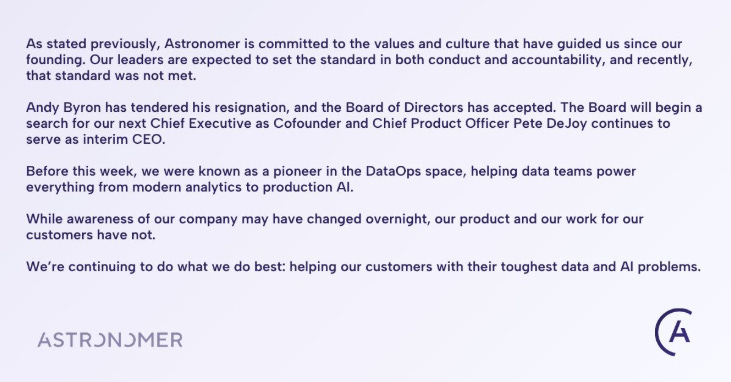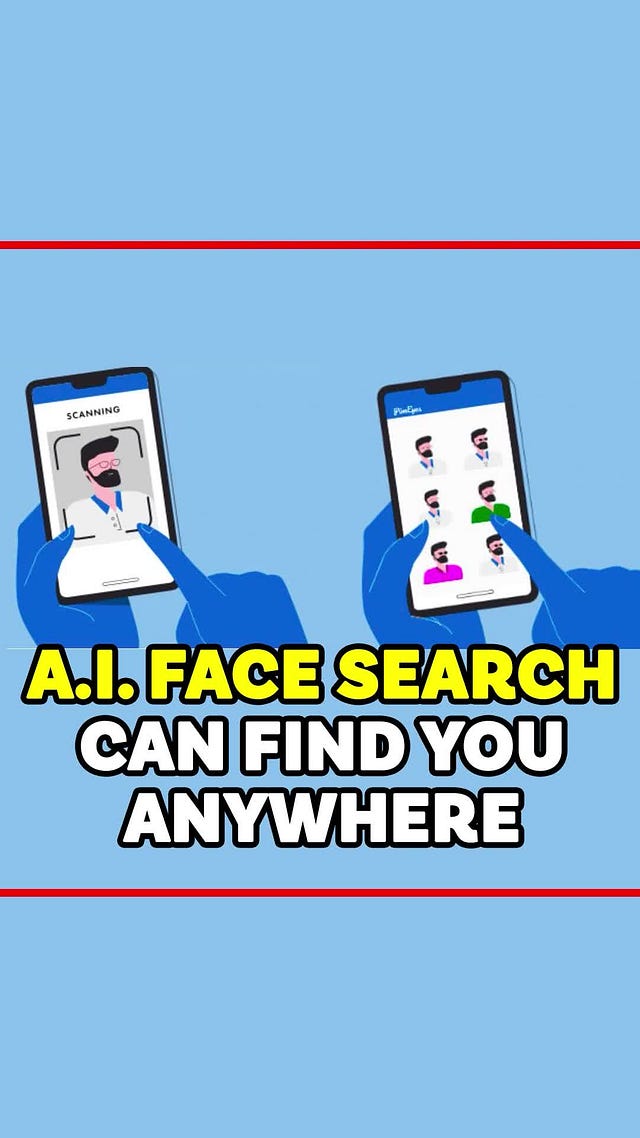Privacy Died at a Coldplay Concert. Attention Became King.
How a kiss cam exposed the death of privacy and the rise of the attention economy
Hi, I’m Jamaal. Welcome to Jamaal’s Letter, where I share insights, predictions, and strong opinions on the future of markets, work, business, tech, and more.
The people who read this newsletter are the people who run the world. If you aren’t yet a subscriber, consider joining them by subscribing below. Please share it with your friends and colleagues if you find it helpful:
Read time: 6 minutes
By now, you’ve probably seen it: the CEO of Astronomer, a software startup, and his company’s head of HR were caught on the kiss cam sharing what looked like a very intimate moment at a Coldplay concert. The video went viral almost instantly. Internet sleuths quickly ID’d both — at least one of them is married.
What followed was internet wildfire: memes, fake corporate statements, online outrage, and faked public posts from family members. The CEO’s wife reportedly changed her name on social media. The scandal’s two protagonists have stayed silent. But the incident, fueled by the fact that one of them runs the company’s HR department, has opened a floodgate of commentary about adultery, social media, workplace conduct, governance, favoritism, and corporate dysfunction.
Since the footage went viral, Astronomer’s board launched an investigation, placed the CEO on administrative leave, and ultimately accepted his resignation.
First, let me state the obvious. This is disastrous for their personal lives, their families, and the company’s internal and external credibility. If the appearances are true — that this was an open secret inside the company — it’s a damning reflection of both personal judgment and organizational culture. It would be incredibly hard to lead through something like this when you’re fighting off personal humiliation. And yet, it’s exactly these moments that reveal whether leadership and governance were ever real in the first place.
I knew this story had cultural resonance when it dominated my LinkedIn feed — a platform famous for being the internet’s last to know — within hours.
This story resonates because it rests on so many human, cultural, and corporate fault lines: an illicit relationship, an HR chief who was also a subordinate, the appearance of corporate dysfunction, and a potentially toxic culture. It also taps into widespread corporate angst and the belief that many leaders are selfish, incompetent, hypocritical, and naive, that HR is not a friend, and that favoritism often trumps merit. And it was delivered to us via kiss cam, an almost universally familiar setting in the U.S. and a particularly popular genre of social media video.
But beyond the spectacle, this story highlights the exact moment we’re living in: a world where privacy is a thing of the past and where attention is the world’s most valuable commodity.
Privacy Is Dead
When I was a kid, I wanted vanity license plates. I thought they were cool and clever. Yet when I purchased my first car as an adult, not that long ago, the last thing I wanted was to be more easily tracked going about my private, daily life.
But, true public anonymity is no longer an option. We are many years into the era where facial recognition technology is almost ubiquitous and invisible in daily life — embedded in smartphones, laptops, and public surveillance systems worldwide. However, we only recently have consumer facial recognition apps that have the power to identify virtually anyone caught on camera, blurring the boundary between anonymity and exposure.
Five years ago, being publicly exposed by a kiss cam would have at least required social media and a few hours of internet detective work. Now, apps can search the internet for your face and, in many cases, your identity within seconds.
There’s no longer an expectation of anonymity.
And this Coldplay incident happened in the U.S., where corporate interests often outweigh privacy rights. Had the concert taken place in Vienna, for example, the same kiss cam stunt would have encountered much more resistance. Under GDPR — The European Union’s sweeping privacy and security — Coldplay and its events team would, at a minimum, have needed to:
demonstrate a legal basis for filming and displaying people
have received opt-in consent (not a "you bought a ticket, too bad" situation)
provided clear advance notice that a kiss cam was happening
given concert goers a way for people to opt out (think wristbands or special seats)
accounted for extra protections if sensitive data, like romantic relationships, were involved
Here, in the U.S., there are no such guardrails. Privacy is increasingly an outdated concept in a system built for corporate gain.
Attention Is the Real Currency
I’d never even heard of Astronomer before last week. It turns out they’re not a space company; they’re an enterprise software startup that has raised $93 million earlier this year.
If they’d spent every penny of those new funds on ads, they wouldn’t have gotten a fraction of the attention they’ve gotten in the last 4 days.
The playbook for getting discovered and staying relevant is changing. My understanding of this new media, marketing, and attention landscape is evolving in real-time. As someone who grew up before the internet, I’m painfully late to the party.
I’m learning from my students, early-twenties digital natives who, since I started asking them in 2018, have consistently told me that their ideal profession is either “influencer” or “creator.”
I’m watching this play out in politics, where the current President of the United States commands attention like few people in history, and where an unknown state assemblyman has leveraged internet attention to propel himself as the presumptive next mayor of New York City. I’m also watching it play out increasingly in Silicon Valley.
Take, Cluely — one of the world's most talked-about startups — whose founder and team are teaching a daily masterclass in seizing viral moments.
Cluely burst onto the scene this year as a viral sensation, not so much for its technology as for its audacious mastery of attention. What began as a tool to “cheat” on computer science interviews, created by a founder who was kicked out of Columbia for building it, quickly morphed into a startup that turned online notoriety into a distribution engine. By leaning into spectacle, short-form video virality, and a vibe-first approach, Cluely is building a brand on provocative stunts and relentless meme-driven content designed for maximum reach.
In an AI startup landscape crowded with technical claims, Cluely stands out not by beating competitors on product (though I’d credit it as being the first mover in this category), but by treating attention as its core asset, and mastering how to capture and monetize it. That strategy is working: the company just recently raised a $15 million Series A led by Andreessen Horowitz, validating its bet that in today’s market, distribution is often the ultimate moat.
That’s how the attention economy works. You either earn it, or trip into it. In today’s world, even negative attention can help build brand awareness.
Skeptics will decry this approach, defaulting to the outdated crisis communications playbook: call legal, craft an internal plan, prepare a holding statement, brief leadership with talking points, and monitor the chatter.
I can’t argue with any of that.
But there’s also this truth: right now, everybody knows who you are. The moment you’d pay millions for in brand reach just happened, not because of your product, but because of your scandal. How you move next might matter more than how you messed up.
Astronomer should effortlessly borrow a page from the Cluely playbook.
I don’t spend my days as deep in sales funnels and marketing campaigns as I once did, but as I wrote on LinkedIn, imagine the Astronomer sales development reps sending this email to prospects that they haven’t yet connected with:
"Subject: Yes, we're THAT Astronomer
You've probably seen the headlines. Not our finest moment.
But while everyone's talking about our leadership drama, they're missing what we actually do: We help companies manage their data pipelines so well, even our internal chaos can't break them.
If you're curious whether a company that can't manage its Kiss Cam moments can manage your data infrastructure, I'd love to show you why our 500+ enterprise clients trust us anyway.
Free audit of your data architecture if you reply with your best Kiss Cam joke."
The Bottom Line
This is the internet’s “most famous person of the day” story, but it cracked through in a way most viral moments don’t.
It’s a cautionary tale about what happens when bad governance meets an unforgiving attention economy. A reminder that privacy is dead, attention is priceless, and weak leadership always costs you more than you think.
And it’s a warning shot to every leader: you might think your mess is private. You might think your company’s dysfunction is under wraps.
Until, suddenly, it’s not.






